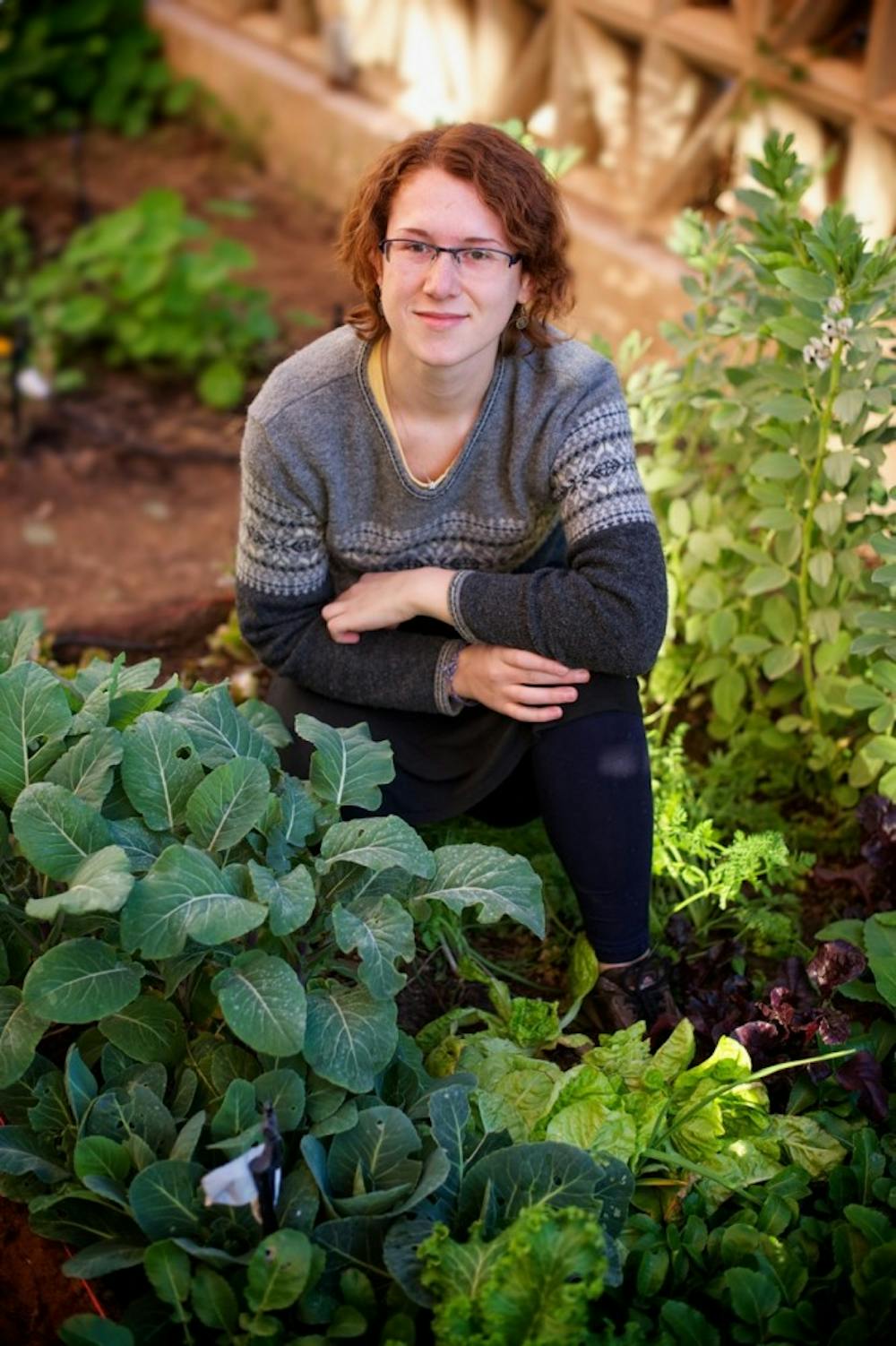ASU junior Kim Pearson is making strides far beyond ASU’s campus to reduce her carbon footprint and help others do the same.
The sustainability and Spanish literature student has taken charge of several projects to spread the word about sustainable living and promote fair trade in developing countries.
“I really love what I am doing,” said Pearson during an interview at Cartel Coffee Lab, a globally conscious coffee shop in Tempe. “I feel obligated to do something while I am here at ASU.”
Pearson’s latest endeavor as the regional coordinator for the United Students for Fair Trade involves planning and organizing Taking Root: A Southwest Sustainable Food Summit.
More than 150 students, faculty and others are expected to attend the summit this weekend, Friday to Sunday, in the Farmer Education Building on the Tempe campus. Through speakers and workshops, attendees will learn how to make a change in social, economic and environmental issues prevalent in the food system today.
Pearson is especially excited for a presentation by Carmen Durán, a maquiladora worker from Tijuana. Durán worked at a foreign-owned manufacturing plant and fought for severance pay alongside some of her co-workers.
In November, Pearson organized No Impact Week, an eight-day initiative sponsored by the Global Institute of Sustainability that encouraged students to live a greener lifestyle by challenging them to do an environmentally friendly activity every day.
“It helped me see how our daily lives impact resource use and how that translates to environmental degradation,” said Will Greene, a business sustainability junior.
Pearson said sustainable living is not as difficult as many perceive. In many instances, she says, it is cheaper, healthier and simply more enjoyable.
Along with some friends in the Sustainability House at Barrett, the Honors College, she started making her own shampoo and conditioner using water and common household items.
“It’s not as hard as it looks,” Pearson said. “It’s old school, like what your grandparents used to do.”
Since using her homemade product, Pearson said her hair feels healthier, softer and less frizzy.
Pearson grew up in west Phoenix with her mother and younger sister.
“We were the typical American family,” she said. “We recycled, but it didn't really go beyond that.”
Ever since Pearson has taken an interest in sustainability issues, her mother Carol Pearson became more knowledgeable on the subject.
“I am really cognitive of the food I buy,” she said. “I pay attention to how far it was trucked from and try to buy local.”
Pearson said buying locally is a way to connect to the community and it is easier to find out where the food was produced.
Pearson’s endeavors not only have evoked change locally, but also have an international impact — specifically in the field of fair trade.
She spent two years working with Las Otras Hermanas, a Phoenix-based nonprofit organization that provides women in Mexico with jobs making sustainable clothing to be sold in the United States.
On a trip to the sewing factory in Juárez as a volunteer translator, Pearson witnessed the living conditions endured by these women and their families first-hand.
“It was shocking,” she said when describing the see-through walls of the houses constructed primarily out of cardboard. “It was so immensely different.”
She said that the women were incredibly kind and generous despite their living conditions. As a result of the fair-trade practices employed by LOH, the women are able to send their kids to school and purchase books and uniforms.
“I was amazed by the strength of these women and their determination to make their community better,” she said.
Pearson spent nearly three weeks in Ghana last summer as a part of ASU’s GlobalResolve program. This social entrepreneurship program is designed to involve students in a semester-long project that directly improves the lives of underprivileged people and those in under-developed nations.
The purpose of the trip was to research business solutions to sustainability issues in the rural villages. The group was able to identify a manufacturer for stoves that used a smokeless ethanol gel fuel and reduced indoor air pollution.
ASU professor Nalini Chhetri, climate change science manager in the Global Institute of Sustainability and a faculty mentor on the trip, said Pearson showed a strong interest in fair trade policies and the treatment of women in the country.
“She was very open-minded and a very sincere person,” Chhetri said.
Chhetri said Pearson was soft-spoken as a student in her class but had a natural ability to communicate with the locals.
“It’s the quiet ones that are more dangerous,” she said. “I have come to admire her inner strength.”
After graduating from ASU, Pearson plans to apply to Columbia University where she would like to study trade law.
“I’m excited for the future,” she said. “I will continue to pursue my passions wherever I go.”
Reach the reporter at jordan.frakes@asu.edu





